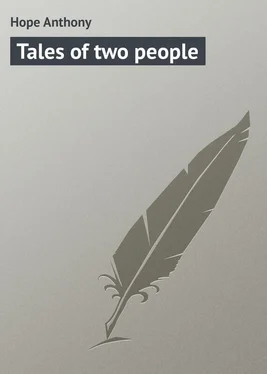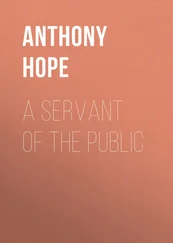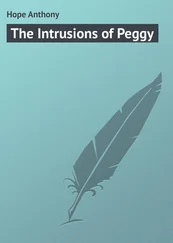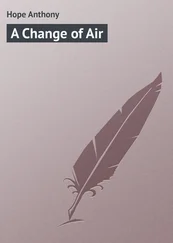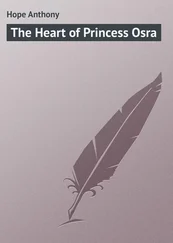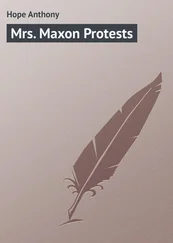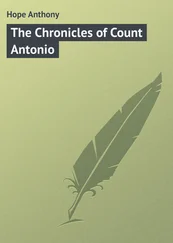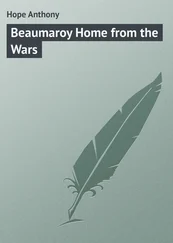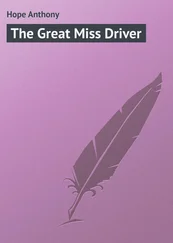Anthony Hope - Tales of two people
Здесь есть возможность читать онлайн «Anthony Hope - Tales of two people» — ознакомительный отрывок электронной книги совершенно бесплатно, а после прочтения отрывка купить полную версию. В некоторых случаях можно слушать аудио, скачать через торрент в формате fb2 и присутствует краткое содержание. ISBN: , Жанр: foreign_prose, на английском языке. Описание произведения, (предисловие) а так же отзывы посетителей доступны на портале библиотеки ЛибКат.
- Название:Tales of two people
- Автор:
- Жанр:
- Год:неизвестен
- ISBN:http://www.gutenberg.org/ebooks/49630
- Рейтинг книги:5 / 5. Голосов: 1
-
Избранное:Добавить в избранное
- Отзывы:
-
Ваша оценка:
- 100
- 1
- 2
- 3
- 4
- 5
Tales of two people: краткое содержание, описание и аннотация
Предлагаем к чтению аннотацию, описание, краткое содержание или предисловие (зависит от того, что написал сам автор книги «Tales of two people»). Если вы не нашли необходимую информацию о книге — напишите в комментариях, мы постараемся отыскать её.
Tales of two people — читать онлайн ознакомительный отрывок
Ниже представлен текст книги, разбитый по страницам. Система сохранения места последней прочитанной страницы, позволяет с удобством читать онлайн бесплатно книгу «Tales of two people», без необходимости каждый раз заново искать на чём Вы остановились. Поставьте закладку, и сможете в любой момент перейти на страницу, на которой закончили чтение.
Интервал:
Закладка:
“You see, I took Nellie, and the dear always does run away. She ran after a rabbit. I ran after her, of course. The rabbit ran into a hole, and I ran into Lord Lynborough. Helena, he’s charming!”
“I’m thoroughly tired of Lord Lynborough,” said the Marchesa icily.
“He must have known I was staying with you, I think; but he never so much as mentioned you. He just ignored you – the whole thing, I mean. Wasn’t it tactful?”
Tactful it might have been; it did not appear to gratify the Marchesa.
“What a wonderful air there is about a – a grand seigneur !” pursued Violet reflectively. “Such a difference it makes!”
That remark did not gratify any of the gentlemen present; it implied a contrast, although it might not definitely assert one.
“It is such a pity that you’ve quarrelled about that silly path!”
“Oh! oh! Miss Dufaure!” – “I say, come, Miss Dufaure!” – “Er – really, Miss Dufaure!” – these three remonstrances may be distributed indifferently among the three men. They felt that there was a risk of treason in the camp.
The Marchesa assumed her grandest manner; it was mediæval – it was Titianesque.
“Fortunately, as it seems, Violet, I do not rely on your help to maintain my rights in regard to the path. Pray meet Lord Lynborough as often as you please, but spare me any unnecessary mention of his name.”
“I didn’t mean any harm. It was all Nellie’s fault.”
The Marchesa’s reply – if such it can be called – was delivered sotto voce , yet was distinctly audible. It was also brief. She said “ Nellie! ” Nellie was, of course, Miss Dufaure’s dog.
Night fell upon an apparently peaceful land. Yet Violet was an absentee from the Marchesa’s dressing-room that night, and even between Norah and her hostess the conversation showed a tendency to flag. Norah, for all her courage, dared not mention the name of Lynborough, and Helena most plainly would not. Yet what else was there to talk about? It had come to that point even so early in the war!
Meanwhile, up at Scarsmoor Castle, Lynborough, in exceedingly high spirits, talked to Leonard Stabb.
“Yes, Cromlech,” he said, “a pretty girl, a very pretty girl if you like that petite insinuating style. For myself I prefer something a shade more – what shall we call it?”
“Don’t care a hang,” muttered Stabb.
“A trifle more in the grand manner, perhaps, Cromlech. And she hadn’t anything like the complexion. I knew at once that it couldn’t be the Marchesa. Do you bathe to-morrow morning?”
“And get my head broken?”
“Just stand still, and let them throw themselves against you, Cromlech. Roger! – Oh, he’s gone to bed; stupid thing to do – that! Cromlech, old chap, I’m enjoying myself immensely.”
He just touched his old friend’s shoulder as he passed by: the caress was almost imperceptible. Stabb turned his broad red face round to him and laughed ponderously.
“Oh, and you understand!” cried Lynborough.
“I have never myself objected to a bit of fun with the girls,” said Stabb.
Lynborough sank into a chair murmuring delightedly, “You’re priceless, Cromlech!”
CHAPTER VI
EXERCISE BEFORE BREAKFAST
“LIFE – ” (The extract is from Lynborough’s diary, dated this same fourteenth of June) – “may be considered as a process (Cromlech’s view, conducting to the tomb) – a programme (as, I am persuaded, Roger conceives it, marking off each stage thereof with a duly guaranteed stamp of performance) – or as a progress – in which light I myself prefer to envisage it. Process – programme – progress; the words, with my above-avowed preference, sound unimpeachably orthodox. Once I had a Bishop ancestor. He crops out.
“Yet I don’t mean what he does. I don’t believe in growing better in the common sense – that is, in an increasing power to resist what tempts you, to refrain from doing what you want. That ideal seems to me, more and more, to start from the wrong end. No man refrains from doing what he wants to do. In the end the contradiction – the illogicality – is complete. You learn to want more wisely – that’s all. Train desire, for you can never chain it.
“I’m engaged here and now on what is to all appearance the most trivial of businesses. I play the spiteful boy – she is an obstinate peevish girl. There are other girls too – one an insinuating tiny minx, who would wheedle a backward glance out of Simon Stylites as he remounted his pillar – and, by the sun in heaven, will get little more from this child of Mother Earth! There’s another, I hear – Irish! – And Irish is near my heart. But behind her – set in the uncertain radiance of my imagination – lies her Excellency. Heaven knows why! Save that it is gloriously paradoxical to meet a foreign Excellency in this spot, and to get to most justifiable, most delightful, loggerheads with her immediately. I have conceived Machiavellian devices. I will lure away her friends. I will isolate her, humiliate her, beat her in the fight. There may be some black eyes – some bruised hearts – but I shall do it. Why? I have always been gentle before. But so I feel towards her. And therefore I am afraid. This is the foeman for my steel, I think – I have my doubts but that she’ll beat me in the end.
“When I talk like this, Cromlech chuckles, loves me as a show, despises me as a mind. Roger – young Roger Fitz-Archdeacon – is all an incredulous amazement. I don’t wonder. There is nothing so small and nothing so great – nothing so primitive and not a thing so complex – nothing so unimportant and so engrossing as this ‘duel of the sexes.’ A proves it a trifle, and is held great. B reckons it all-supreme, and becomes popular. C (a woman) describes the Hunter Man. D (a man) descants of the Pursuit by Woman. The oldest thing is the most canvassed and the least comprehended. But there’s a reputation – and I suppose money – in it for anybody who can string phrases. There’s blood-red excitement for everybody who can feel. Yet I’ve played my part in other affairs – not so much in dull old England, where you work five years to become a Member of Parliament, and five years more in order to get kicked out again – but in places where in a night you rise or fall – in five minutes order the shooting squad or face it – boil the cook or are stuffed into the pot yourself. (Cromlech, this is not exact scientific statement!) Yet always – everywhere – the woman! And why? On my honour, I don’t know. What in the end is she?
“I adjourn the question – and put a broader one. What am I? The human being as such? If I’m a vegetable, am I not a mistake? If I’m an animal, am I not a cruelty? If I’m a soul, am I not misplaced? I’d say ‘Yes’ to all this, save that I enjoy myself so much. Because I have forty thousand a year? Hardly. I’ve had nothing, and been as completely out of reach of getting anything as the veriest pauper that ever existed – and yet I’ve had the deuce of a fine existence the while. I think there’s only one solid blunder been made about man – he oughtn’t to have been able to think. It wastes time. It makes many people unhappy. That’s not my case. I like it. It just wastes time.
“That insinuating minx, possessed of a convenient dog and an ingratiating manner, insinuated to-day that I was handsome. Well, she’s pretty, and I suppose we’re both better off for it. It is an introduction. But to myself I don’t seem very handsome. I have my pride – I look a gentleman. But I look a queer foreign fish. I found myself envying the British robustness of that fine young chap who is so misguided as to be a lawyer.
“Ah, why do I object to lawyers? Tolstoy! – I used to say – or, at the risk of advanced intellects not recognising one’s allusions, one could go farther back. But that is, in the end, all gammon. Every real conviction springs from personal experience. I hate the law because it interfered with me. I’m not aware of any better reason. So I’m going on without it – unless somebody tries to steal my forty thousand, of course. Ambrose, thou art a humbug – or, more precisely, thou canst not avoid being a human individual!”
Читать дальшеИнтервал:
Закладка:
Похожие книги на «Tales of two people»
Представляем Вашему вниманию похожие книги на «Tales of two people» списком для выбора. Мы отобрали схожую по названию и смыслу литературу в надежде предоставить читателям больше вариантов отыскать новые, интересные, ещё непрочитанные произведения.
Обсуждение, отзывы о книге «Tales of two people» и просто собственные мнения читателей. Оставьте ваши комментарии, напишите, что Вы думаете о произведении, его смысле или главных героях. Укажите что конкретно понравилось, а что нет, и почему Вы так считаете.
